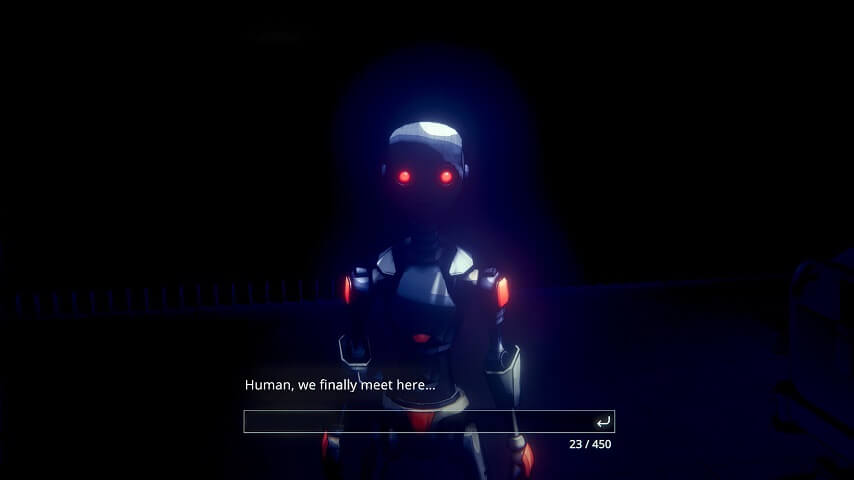Game Theory: Are AI murderers worth the cost?
New AI-powered detective game Uncover The Smoking Gun highlights the deceptive novelties of AI

Every Friday, A.V. Club staffers kick off the weekend by taking a look at the world of gaming, diving in to the ideas that underpin the hobby we love with a bit of Game Theory. We’ll sound off in the space above, and invite you to respond down in the comments, telling us what you’re playing this weekend, and what theories it’s got you kicking around.
For the last couple of years, the tragically tech-afflicted amongst us have been searching, with increasing levels of reeking desperation, for a genuine use case for artificial intelligence in games. Like so much of AI discourse, a distressing amount of these drizzling brainstorms have come from a place of skepticism toward the basic concepts of artistry and expertise—i.e., taking something like level design, an art form that exists entirely within the gaming medium, tossing it off to the machines, and expecting it to even hold a candle to a genuinely authored level. (Or even a more cultivated example of procedural generation like Derek Yu’s Spelunky, a gorgeous example of the art that can be found in algorithmically generated content.)
They got us through our weak point, though: When a key for an upcoming mystery game, Uncover The Smoking Gun, arrived in our inboxes a few weeks back, it got our detective game salivary glands flowing with comparisons to games like The Case Of The Golden Idol and the flawed (but interesting) detective portions of Detroit: Become Human. We’d already installed the game in a fit of curiosity when we realized what the primary hook of its story of investigating murders committed by robots was: The ability to interrogate said bots, which would be powered by chatbots in their efforts to simulate actual conversation—including lying to the player detective, albeit with special indicators to make it clear when this was happening.
It was an intriguing, if off-putting concept. Interrogation is one of those media tropes that’s never been done well in video games, where it often boils down, L.A. Noir-style, to picking approaches from a list of responses and then getting basic feedback about whether you asked the question right. It’s often frustrating, because the pre-supplied answers never quite match how you, the player might want to ask something, or focus on the right element of an anomalous piece of evidence. Being able to craft our own questions, and have them semi-realistically answered, had a certain appeal. At the same time, Smoking Gun‘s basic premise—all of your suspects are robots, who have weird reactions when they try to lie—carried a built-in excuse for any of the wonkiness that chatbots inevitably shit out as they chew up a whole forest or whatever to power their stilted mimicries of human conversation. We were at least interested enough to see whether the game could actually simulate something fresh, or just crap out a bunch of auto-generated garbage.
The results were mixed, to say the least. We’ll give credit to ReLu Games, first and foremost: They’ve crafted a series of fairly interesting, if simple, murder mysteries here, and most of the information in any given case can be picked up from evidence and observation, as in any good detective game. And those moments when the AI systems actually worked—when we asked the right question, and one of the robots casually let slip a piece of information that unraveled the entire case—were genuinely satisfying. (See also those moments when hammering a lying robot with obvious evidence pushed them over into “confession” mode, capturing a breaking point aspect of interrogations of the kind you normally only see scripted out in games like Phoenix Wright.) But there were also plenty of weird, pointless tributaries and flailing about—notably, when we tried to ask bots about something only adjacent to their areas of interest. (Asking two service bots to tell us where to get an object we couldn’t find led us on a 20-minute wild goose chase, and while that might be accurate to the human experience, it certainly wasn’t thrilling or enjoyable.)
Throughout, though, we kept coming back to the old question: Was what we were getting from this worth what we were selling? It shot through the entire experience, from seeing numerous art assets that carried the cruddy, sloppy hallmarks of AI generation, right through the conversational systems themselves. There was novelty to questioning a bot and getting them to break, sure, but was that novelty worth losing the written aspect of a well-crafted back-and-forth? Of having characters with actual personality, instead of a series of vocal tics and repeated jokes meant to create the illusion of one? There was an aspect of the entire thing that felt low-rent, in a way that had nothing to do with the game’s budget: That sense of a creator gesturing vaguely at a new objective and expecting you to sort of just muddle toward getting on with it, instead of creating a more focused experience. We’re glad we played Uncover The Smoking Gun, undeniably; we were also just as glad when we stopped.